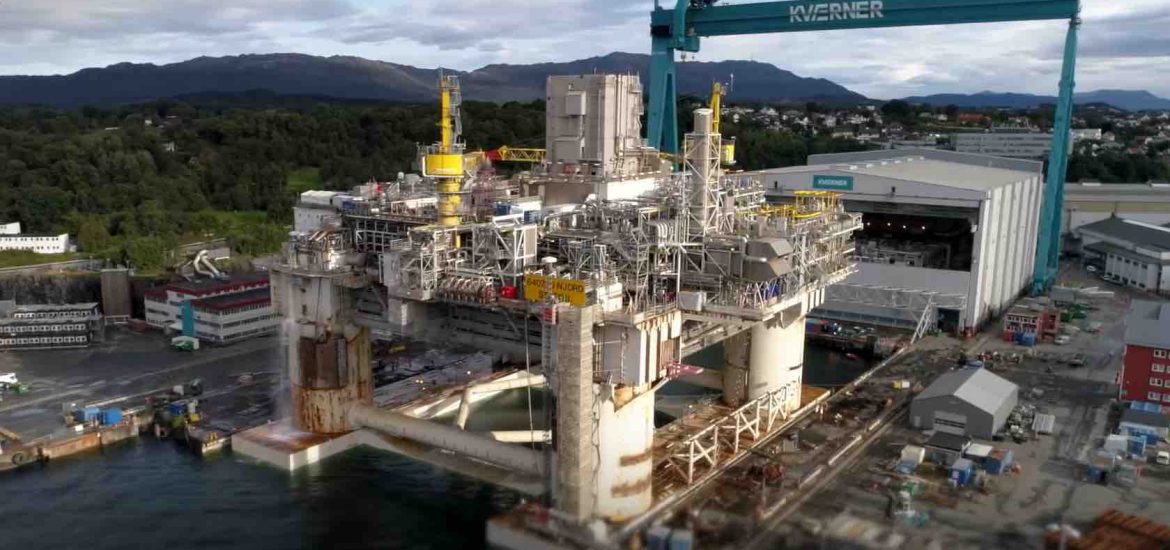
North Sea oil and gas platforms could use offshore wind farms to cut their carbon emissions, following the example of Norway’s Equinor that is establishing a floating wind platform in the blustery sea.
The trade body, Oil and Gas UK, said generating power by burning gas or diesel accounted for the majority of the direct carbon emissions at its operations.
Carbon output could be reduced by connecting offshore operations to the onshore electricity grid or to offshore renewable sources.
Targets were also set for oil and gas production, exports, employment and technology after a consultation process with 2,500 people working in the sector.
Oil and Gas UK said it was not accountable for the far greater pollution produced by the customers using North Sea fossil fuels. The organisation said that was a matter “for all of society to tackle collectively”.
Deirdre Michie, CEO of Oil and Gas UK, said the proposals were “one of the first industrial responses” to the government’s new goals and showed “an industry in action with a credible plan for the future”.
She said North Sea operators were ready for the “huge challenge” of providing reliable energy while playing a “major role” in national efforts to reach net-zero emissions.
The UK has stated a goal of reducing its emissions to “net-zero” by 2050, although the current Conservative government in London has made numerous promises that it has failed to keep.
Oil and Gas UK said the two fossil fuels would meet around two-thirds of the UK’s energy needs by 2035, while contributing more than £8.5 billion to government funds over the next five years.
Ross Dornan, an Oil and Gas UK analyst, said that shutting down the North Sea oil industry would not cut emissions as demand for fossil fuels would not reduce.
“All we would do is we would import the product from another country where the carbon footprint may be higher and it wouldn’t bring the benefits a domestic industry such as ours brings,” Dornan said.
“We don’t think it’s appropriate for us, as an industry, to set [emissions] targets. The consumption of the products and demand for the products is one for the wider UK economy. We are here to produce oil and gas, and we are here to do that in the most carbon-efficient way in the future.”
Oil and Gas UK said the industry had reduced the carbon intensity of its operations by 16 per cent since 2013 and emits 21,000 tonnes of carbon dioxide for every million barrels of oil and gas equivalent it delivered. The trade body estimated that this should drop to 4,000 tonnes by 2050.
Equinor is looking to power its rigs through floating wind power. Picture credit: YouTube





